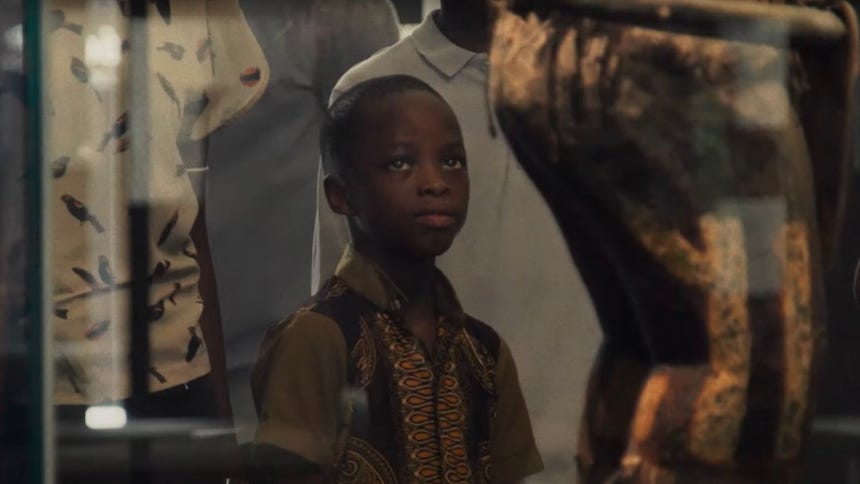Mati Diop
Dahomey, 2024
and, we are soooo…. back.
I have been meaning write to you all about something worth seeing and it finally happened!
Last month, I was introduced to the brilliant Mati Diop whose star first rose thanks to her film Atlantics, which was released in 2019. In the frenzy of jitters before Marni’s recent collection debuted at Milan Fashion Week, Diop generously invited me to her film’s NY debut at the New York Film Festival. (Thank you for introducing us, Romain!)
I went in without much expectation, as I rarely research films before watching them. I prefer to let the experience unfold naturally, and Dahomey was a delightful surprise.
This film is a fierce fusion of sword, sorcery, and documentary, exploring post-colonial themes through the story of precious artworks being returned to their homeland, the Republic of Benin, after being looted by French colonial troops in 1892, when the region was known as the Kingdom of Dahomey.
Early on, Diop introduces a wooden statue of King Gezo, who ruled Dahomey in the mid-1800s, as one of the film’s protagonists. We watch as this statue, labeled 26, is transported from the Musée du Quai Branly back to Benin. The detail and care shown by the registrars is beautiful, especially since such work often goes undervalued and unseen.
Adding depth to the narrative, we hear Gezo’s voice, brought to life by Makenzy Orcel and enhanced by sound designers Corneille Houssou, Nicolas Becker, and Cyril Holtz. Gezo’s voice is haunting—not menacing, but rather vulnerable, reflecting the profound loss of a home that has transformed dramatically. His inner monologue skillfully navigates the complex legal, logistical, and moral questions surrounding the restitution debate. (There’s a sinister notion that artifacts should not be returned to their native countries due to concerns about their “ability to care for works,” often overshadowing the culpability of colonial powers in the discourse. It’s a troubling omission that highlights the ongoing shame of historical injustices.)
Later, the film goes on to include perspectives from students at the University of Abomey-Calavi, who publicly and enthusiastically grapple with the question of restitution and cultural heritage. Their scenes are electric, adding a powerful contemporary perspective.
Acquired swiftly by Mubi after its run at the Berlinale, where it won the prestigious Golden Bear, Dahomey has already made a significant impact.
What struck me most was how, after viewing it, I spent days reflecting on whether I liked it. I usually shoot from the hip on hot takes. However, in a moment that often feels overwhelming and overstimulating, it’s been rare to have images that linger positively in my mind. Diop’s narrative choices made me appreciate the value of a slow and considered way of looking. Dahomey is a necessary watch, reminding us that we can tell hard stories in gentle ways.



